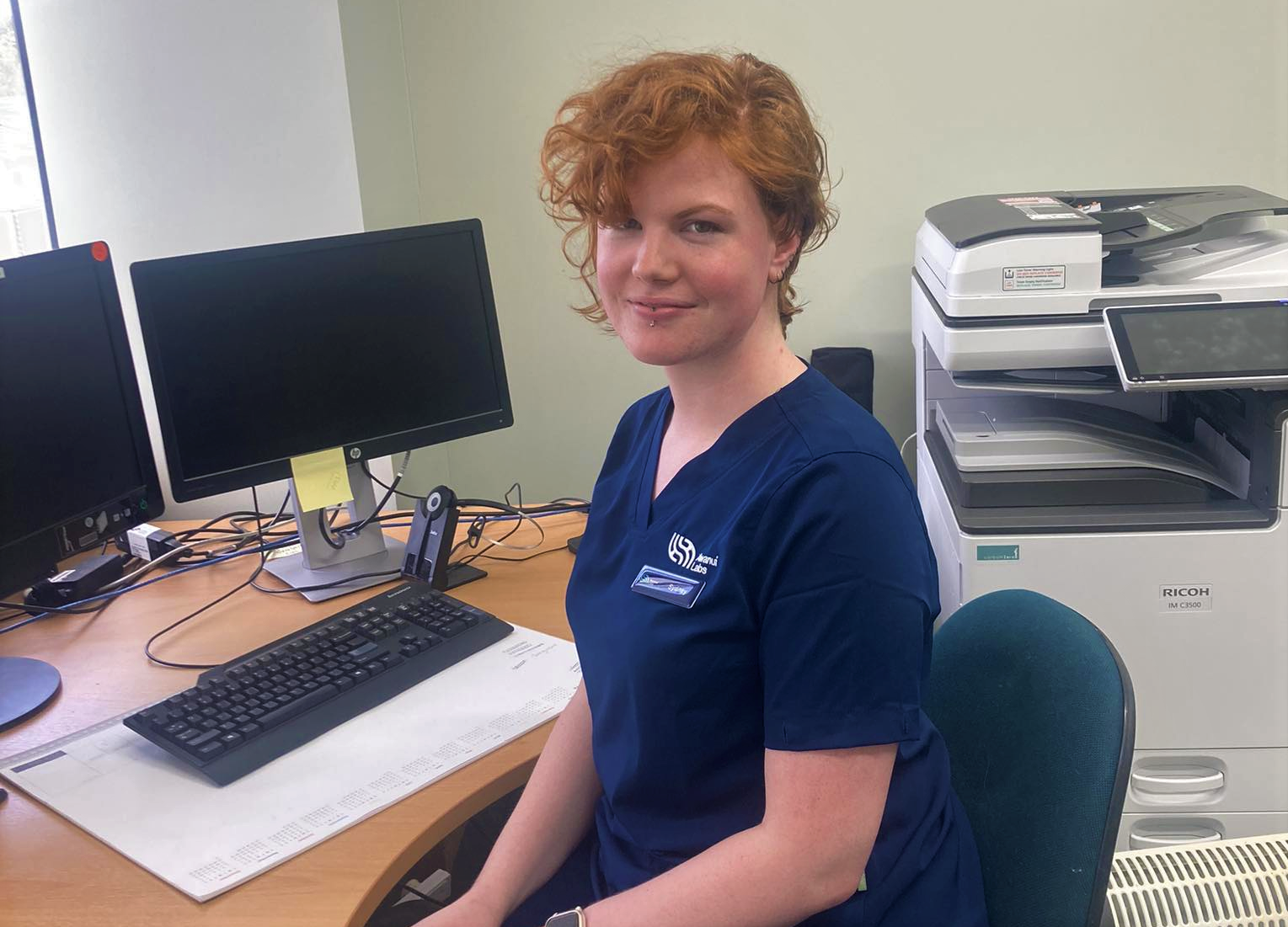For many people, having their blood sample taken means visiting a collection centre in the main city centres, however for others in our communities this is not possible.
In addition to our usual collection centre and daily hospital ward rounds, Awanui Labs Wellington also operates ten car runs across the Greater Wellington Region each day visiting private homes, retirement villages, as well as Remutaka and Arohata Prisons, and multiple group homes and rehabilitation units.
In addition to this, our phlebotomists visit medical centres in Naenae, Eastbourne, Tawa, Mana, Featherston and Martinborough to ensure better access to collection services for local people in smaller communities across the region.
Phlebotomist Sydney Steele visits patients in retirement villages and their homes across Lower Hutt each week. She says the visits are often about the patients having contact and company with someone they look forward to seeing.
“You hear about their day, and what they have been doing, which can be something like they have been pruning their rose bushes. By taking a few minutes to get to know each person, they get to know us too and that human contact is really appreciated and makes a difference,” says Sydney.
“A lot of my patients are pensioners living by themselves and I also visit someone who is agoraphobic and cannot go outside. Some have a hard time even answering the door, but they know we provide a necessary service, and getting their blood taken is so important to their treatment and care.”
Patient Services Manager Julie Page says there are a lot of different and new challenges to meet the needs and the large volumes of patients visiting our collection centres as well as the varying needs of those out in the community in other settings.
“Doctors and healthcare professionals can refer patients for home visits, and Awanui has clear criteria for these and there is only so much capacity. We do prioritise those who need this the most, and it is a lot of work to arrange these visits.”
“Every day is a different challenge. Our waiting rooms are continuously full, and people come from all walks of life, from all over the region with their own stories. There is also a lot of administration associated with each visit, phlebotomy is a much bigger job than it used to be, says Julie.”
“Collection centre staff also visit all the public and private hospitals in the Wellington region including the Wairarapa, and we also provide basic phlebotomy training sessions for medical students and nurses in the hospitals and practice nurses from GP clinics.”
“It is important to have other roles in the health sector skilled in venipuncture so people in smaller regions which might not have a collection centre can have their blood taken for testing. Our logistics team will always get it to the lab, but having people in more healthcare settings taking blood makes a difference for the communities.”
Team Leader Sue Udy says phlebotomists are the front line and go over and above in their work constantly.
“They see people with a phobia of needles or blood, or having their blood taken for the first time, which often happens when they are young. It is important for people to have the right experience, ensuring our patients are happy when they leave, and more relaxed about coming back to the collection centre next time.”
Sue points to a recent example where a young teenage patient fainted and fell hitting her head having just left the collection centre in Lower Hutt at the end of the day.
“Three of our staff stayed with her until the ambulance came after the centre closed. Her mum rang to thank the staff members and was so impressed three of our people where more than willing to stay to help her daughter.”
Sydney has been a phlebotomist for two and a half years and moved to Wellington to be with family a year ago.
“I decided not to go into nursing and was working as a receptionist for a healthcare company. I was writing up patient notes and got really interested in blood testing and what was involved. So, I began my training and I have not looked back.
“Everyone has their job and calling, and if you are caring and want to help people, then phlebotomy is a very rewarding career.”
This story is part of our series for Phlebotomist Recognition Week
